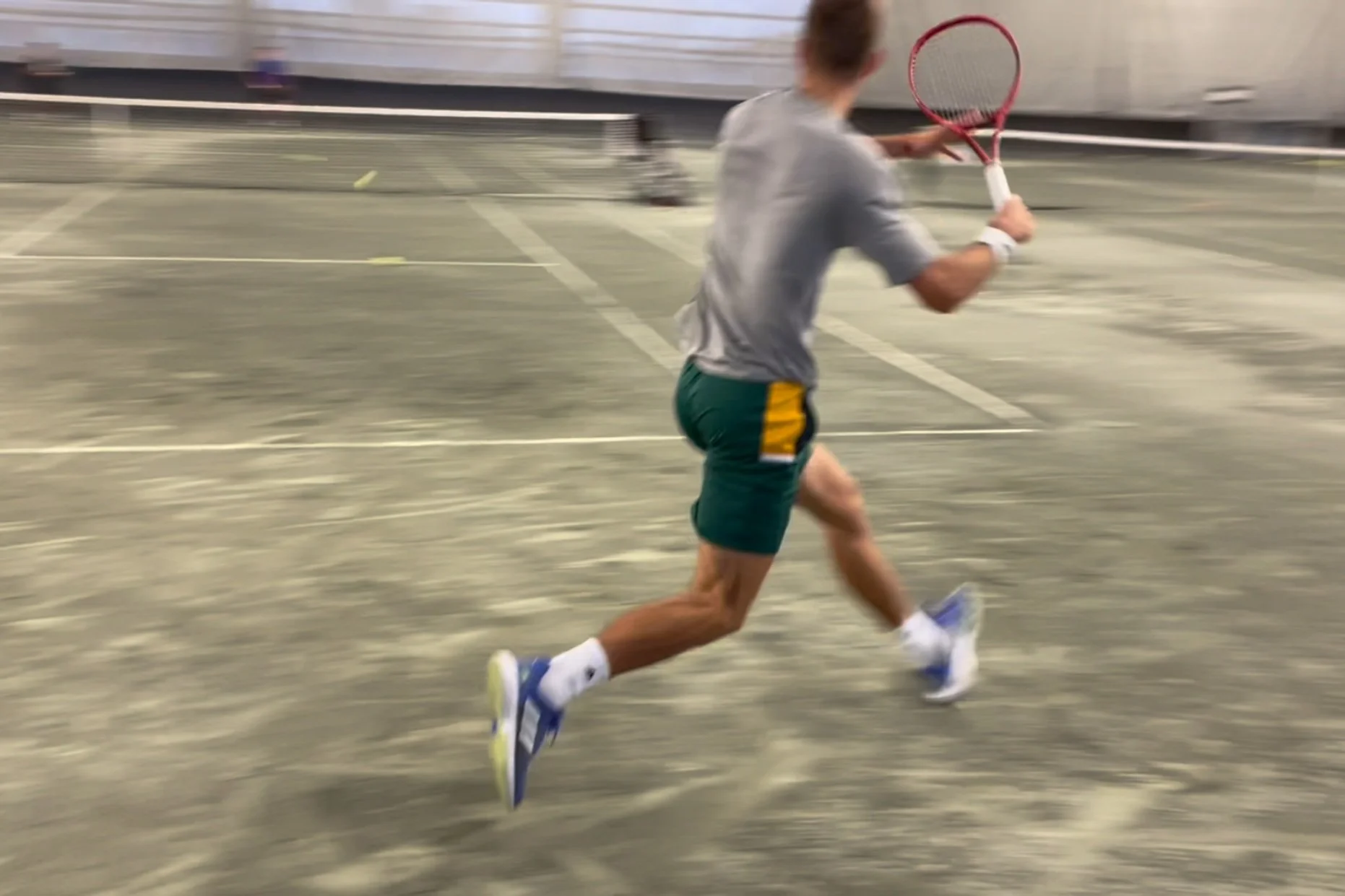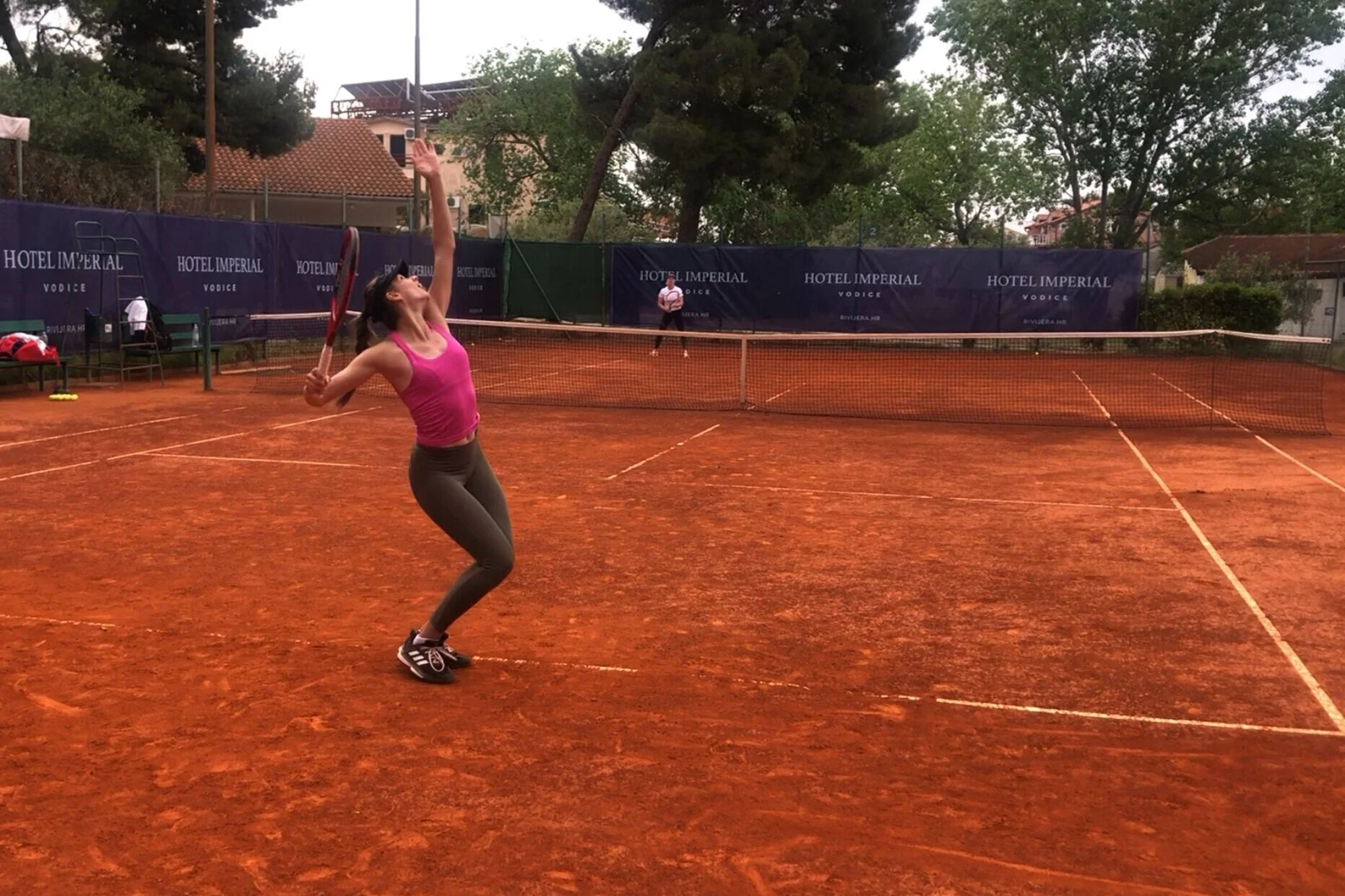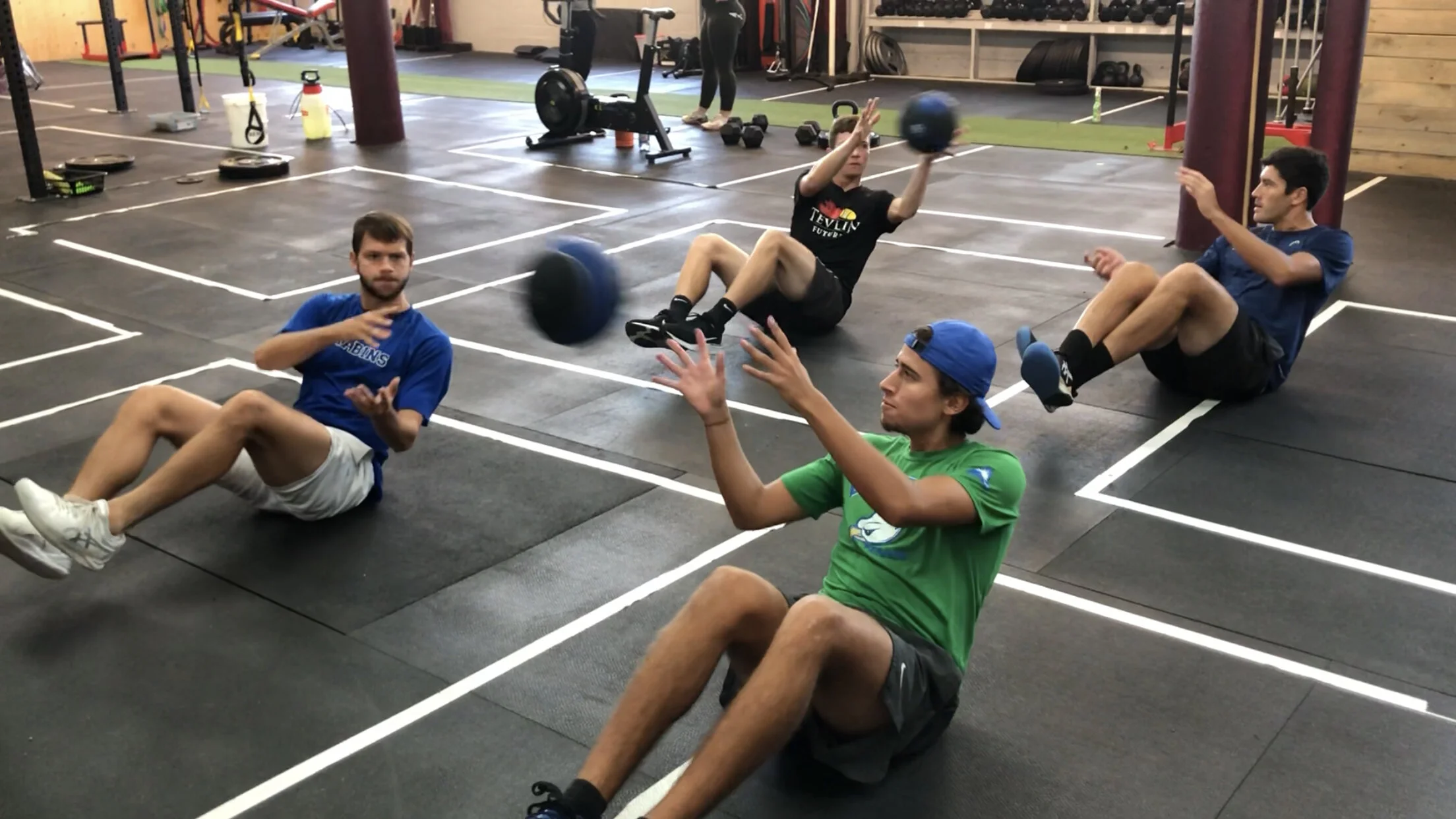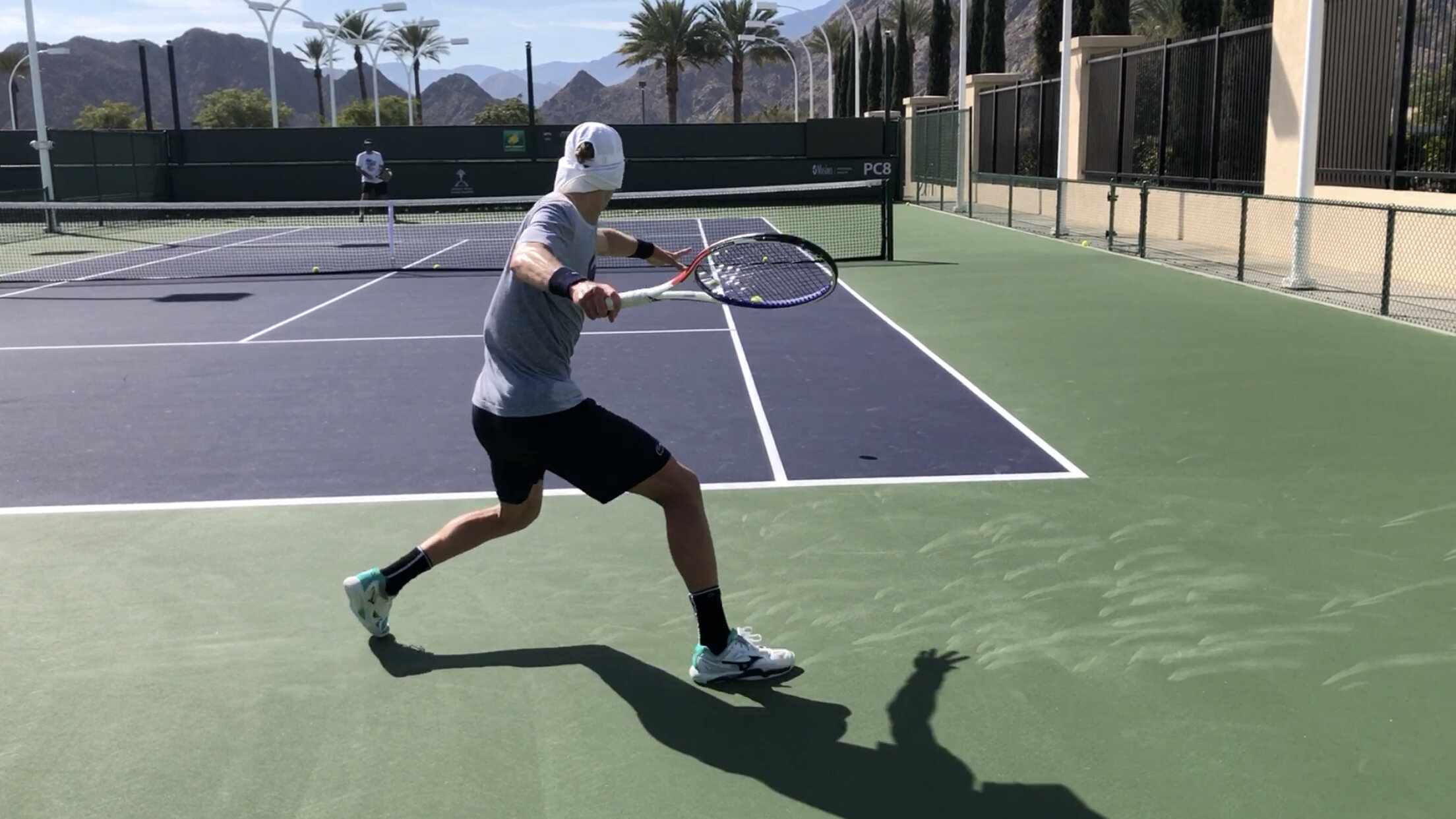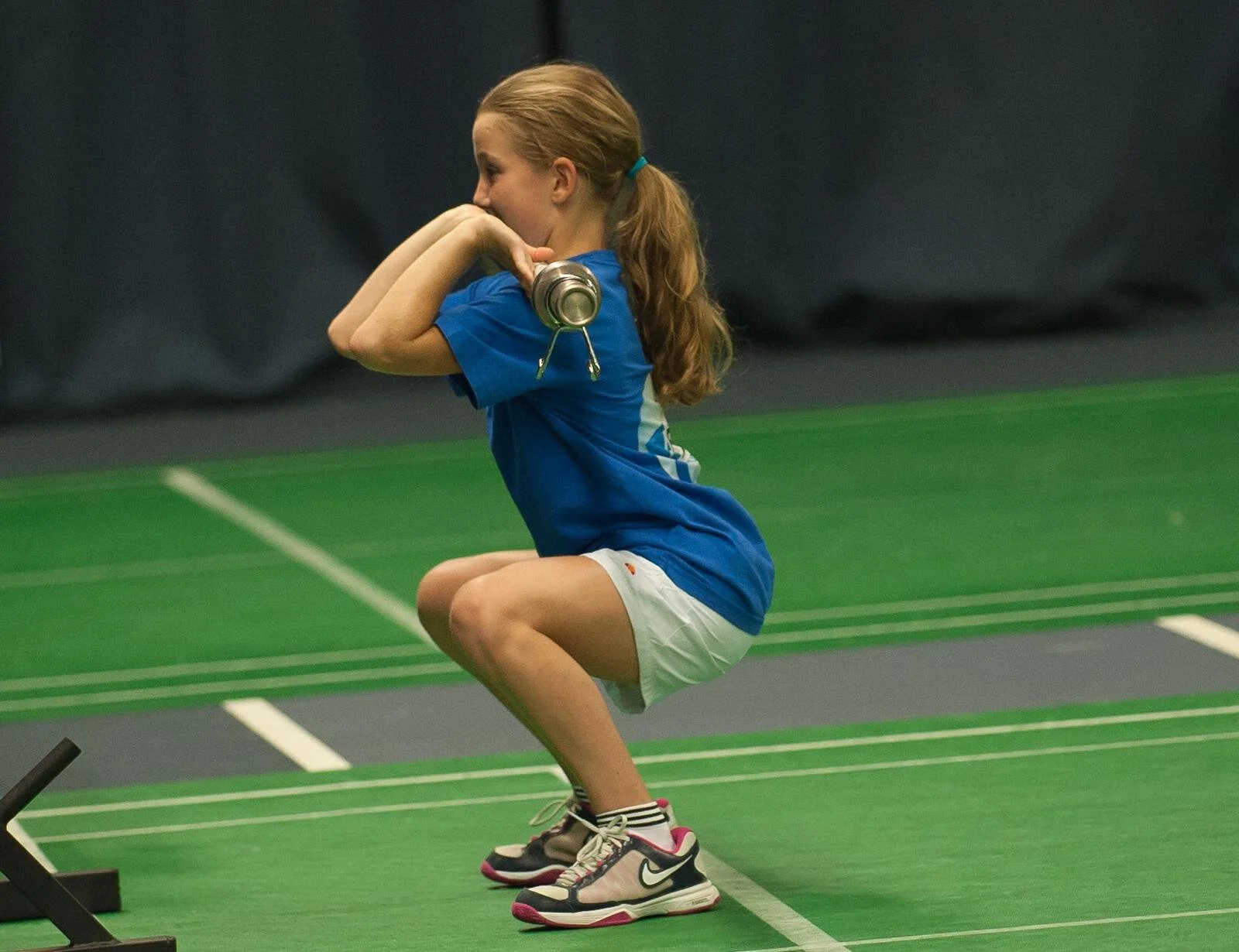One of those ways is to use med balls for non-throwing scenarios. I know, for the most part, med balls are used for throwing purposes (and made for this reason as well). Throwing allows us to have a shorter deceleration phase and extend the propulsion phase - akin to doing a jump squat instead of a barbell squat for the development of lower-body power.
What does the typical practice in tennis look like? If you’re someone that’s been around the game for many years, it probably follows a pretty similar structure - mini-tennis, groundstrokes, volleys/overheads and lastly, serves and returns.
But what if a player’s priority is to improve the serve? Does it make sense to hit for an hour (or like in many tennis settings, beyond an hour) prior to serving?
Back in 2017, I wrote an article about plyometric training. The aim of that post was to introduce plyos, outline the mechanisms at play and to showcase their relevance to tennis performance (from both a research and practical perspective).
That article was a good starting point. It highlighted the diversity that exists when we look at tennis movement...and how plyos, because of their versatility - ie. they can be performed in a multitude of directions, velocities, amplitudes etc - might very well be the most important ingredient when it comes to better on-court movement.
In today’s post, I’m going to share a few thoughts on physical training for tennis. There isn’t a lot of research on these topics as they relate to tennis directly - but I’ll provide my own insights (with some basic science for more eager learners).
The 3 topics are med ball training, strength training and energy system development - all of which are framed differently than what you’ve probably seen or read elsewhere.
Here's the typical trainer's concern; it's believed that players outside of the top 100 have worries that a guy like Federer doesn't - i.e. travel expenses, points to defend and so on. Many of these players perform a concentrated physical prep block for 4-6 weeks in Dec/Jan (just prior to the start of the new season) and then a number of 1-2 week blocks during the course of the year. These same trainers will also agree that this isn't enough - performing one 4-6 week block along with 2-3 smaller blocks during the year is an insufficient amount of time to develop a quality like explosive power, for instance.
This is a sample of a lesson from my new resource - Beyond the Swing: Online Tennis Course. The course is set to release this week. Stay tuned for more info.
While there’s nothing normal about the current competitive tennis calendar, a few of my players are in a situation where they’re able to play a competitive league - organized by Tennis Canada.
I received several replies and comments from last week’s post on ‘why was I late’. Some of these were more ‘technical’ in nature. Others focused on the perceptual abilities that tennis demands (which if you haven’t noticed already, I can’t stress enough).
Over the last few weeks, I’ve had the chance to play more tennis. More than usual anyway. And it’s been really great (although I’m not in as good of shape as I thought I was!). The truth is, I’ll be 35 this year, which means I could, in theory, play senior ITF events. Maybe I will, who knows.
I recently wrote an article for ALTIS - an education platform & elite athlete training facility - where I outlined how I use their Kinogram Method with tennis players.
What I didn’t do in that post, however, was show a step-by-step approach of how to actually develop a kinogram - which is what I’m going to do here.
By this point, if you’re a tennis player, it’s no secret that you’re itching to get on the tennis court. Who wouldn’t be? It’s that time of year. Warmer weather. Flowers blooming. Outdoor tennis is around the corner.
Unfortunately, however, many players go about it the wrong way. Most, after a long layoff, are so eager to get back to the tennis court, they schedule multiple sessions that first week. Not only that, they’re so fired up that they hold nothing back. Running from side to side, hitting with that new found strength they’ve developed over the winter.
Here’s the thing, it’s kind of a mess out there, isn’t it? From the latest & greatest exercises to outdated information - and promises of quick results - the tennis fitness world can be a confusing place.
The truth is, there’s no one best exercise or one best program or one best [insert training fad of the week].
Instead, what we are left with are principles. Scientific principles to be exact. Like specificity and progressive overload and adaptation. So if a program is built on this type of foundation, improvements are almost ensured. If not...well, the reverse is probably true.
Don’t believe me? Consider for a moment what my clientele looks like:
I recently saw a post on a Facebook coaching forum. It was actually a question that went something like this, “coaches, have you seen any of your players improve their tennis because of their physical training?”.
My hand immediately covered my face and I began shaking my head in disbelief (no, no, no...it can’t be).
My answer to the question is an emphatic YES! Of course I’ve seen - on numerous occasions - physical preparation directly benefiting a player’s tennis game.
And in this post, I wanted to expand on these topics in more detail to add clarity to each.
First, here’s a bit of context. It’s been nearly 10 years since I began my master’s degree in sport science at the University of Edinburgh. It was 2010 and I was an eager young lad (as the scot’s would say).
Before then, I had a lot of ‘in the trenches’ experience - as a player and a coach. But going through a masters programme got me on the research train, and I’ve been on it ever since.
This past weekend, I had several players message me looking for a training program they could do for the next few weeks (or perhaps longer) - one that wouldn’t require any gym equipment. And in light of recent events, I’m guessing they aren’t the only tennis players (and athletes in general), in this scenario.
Because of this, I’ve taken some time to create what I’ve called, The ‘No Gym’ Program. So if you’re in the same situation as many (and don’t have access to gym equipment), just scroll to the end of this page and enter your email address - you’ll receive the program for free.
I don’t train as many junior players now as I have in the past. It’s not that I don’t want to, it’s just that I’m in a position right now where older players - those that are playing professionally (either on a full-time or part-time basis) - take up a big chunk of my time.
That said, I still manage to coach a number of younger players (both in-person and remote). The ages range but generally fall between 9 and 15… and all of them are exposed to strength training in one form or another.
The reason I’m bringing this up is because I often get asked by parents… “is lifting weights dangerous?” or “will lifting weights stunt my child’s growth?”...
Over the past several weeks, we’ve received a number of nutrition-related questions. While those questions were answered in private, we thought “you know what, if one person needs an answer to it, others probably do too.”
To dive deeper into some of these questions, I’ve asked my friend and colleague - Darin Huslander - to make sense of these topics.
When it comes to selecting the most appropriate exercise for a tennis player, it’s important that we look at it from every angle imaginable. The reason - tennis-play is not only multi-directional, but it’s also multi-planar. On top of that, there are different stances that players not only move through, but strike the ball in. And they do this on different surfaces - which can also make matters more challenging....and have an influence on exercises/drills.
Every competitive tennis player has experienced playing in the “zone” at some point in their career. You feel dynamic, but calm and relaxed. You have a feeling of strength, confidence and invulnerability. You take pleasure in the match and the battle at hand, without worrying about losing, or even winning for that matter. You forget about technical flaws, you focus on the ball and your target. In the end, you just play, and everything seems to flow, in so much that you might even lose track of time and the score. Seem familiar?
Whether you’ve experienced the zone during a competitive match or not, many will agree that the feelings I just described represent an ideal mental state to play elite level tennis. So what if I told you that you could get in the zone on command?
This past summer, we saw an influx of tennis players join our fitness programs. Many tennis players simply play tennis during the summer months - so having them join our off-court sessions was a good thing. A typical schedule for these players would see them hitting for about 1.5-2 hours per day and spending another 3-4 days with us in the gym.
While it’s great to see tennis players getting after it in the weight room, we spotted an unwanted trend amongst the group. Fatigue. But not the fatigue you’d normally encounter after 2 hours of tennis or a gruelling match. No, this was more of a general type of fatigue. One that’s typical amongst tennis players (especially juniors) but isn’t always easy to pinpoint it’s root cause.

